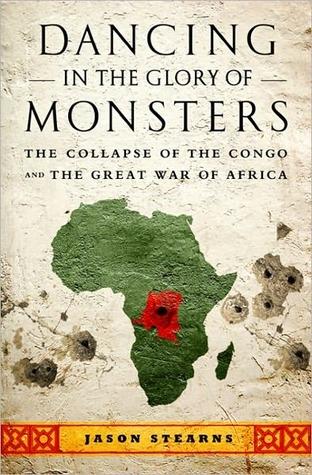For several months I have been a volunteer blogger for Amirah Boston, a safe house for girls who were once trafficked in the sex-trade industry. About six weeks ago I wrote an article for Amirah entitled "Good guys and bad guys". I've re-worked that post and would like to share it here. I know that's kind of cheating - re-using an old blogpost - but I liked the post, I worked hard on it, I think it's relevant outside of Amirah...and recycling is good, right?
Recently, I’ve been thinking a lot about war. Not a very cheery subject, I know, but one that has been pecking away at my mind, provoking some interesting questions. The most probing of which has gone something like this; is it possible for someone to believe so strongly that ‘I am right’ and ‘they are wrong’ that they’d go to war over it? That they’d kill, or tell others to kill for it?
Last week my dad and I took a 10-hour drive together and had the time and privacy to talk about all sorts of things. I asked him about his days on the national police force and what it was like to fight in the Rhodesian war. Back then (the 1970s) national service was required of all Rhodesian males and at 18-years-old, dad was leading squads of men, firing guns, transporting convoys of civilians through the bush, and watching for ambushes and landmines. I asked him what they were fighting for.
“Smith (Prime Minister at the time) was afraid of what the country would become,” he said. “The rebels in Mozambique were backed by China, the rebels in Zambia were backed by communist Russia.”
I struggled to reconcile this with the fact that my dad’s ‘side’ lost the war – the ‘rebels’ won. And today he sits in church, plays squash, has coffee and works alongside men who fought on both sides of that war – with and against him. ‘So,’ I thought, ‘what was the point of all that fighting? Who are the bad guys and the good guys and the victims?’
But war isn’t that simple.
I’ve just started a book called Dancing in the Glory of Monsters about the war in central Africa. In it the author, Jason Stearns, interviews a Rwandan army commander and asks him about his role in the exiled government that opposed Paul Kagame. The commander’s response to Stearns made me reevaluate my questions:
“You are being too logical about this!” said the commander, “We were in the middle of a war. We didn’t have time to think whether we were complicit in a genocide – we were just trying to survive.”
Now, I realize that this sounds like a pretty flimsy, even horrific excuse in light of the awful massacre that occurred and I’m not at all dismissing the actions of this or any other person who participated in the genocide. My point is that I can’t make a judgment either way; I wasn’t there. I didn’t feel the fear, didn’t live in the climate or context of those tribe’s histories, I wasn’t born in Rwanda. I didn’t live through that war. So why do I feel free to make judgments from a distance, comfortable and safe in my moral superiority over ‘those people’?
It's the same way I feel about human trafficking but it isn't that simple either. It's not about helpless victims and evil traffickers, it's about people. It's about human beings with histories, men and women that come from specific contexts, needs, fears and situations.
It's the same way I feel about human trafficking but it isn't that simple either. It's not about helpless victims and evil traffickers, it's about people. It's about human beings with histories, men and women that come from specific contexts, needs, fears and situations.
In things like war and human trafficking we have a tendency to seek out the ‘evil person’ – the one who caused all this suffering – and we want to find him as soon as possible. Then we can heap hordes of blame and judgment on his or her head. It’s a tendency encouraged by today’s sound-bite media and our own short attention spans – we want the problem simplified, digestible, easy to solve, and easy to blame. It’s encouraged by movies like The Avengers where the good guys are always right and heroic, never make mistakes and always save the day, while the bad guys are so obviously and totally evil that no one doubts the necessity of their destruction. Of course they have to be taken out.
But in real life we can’t just separate everyone into heroes and villains, victims and killers. In real life, war, poverty and governments are made up of human beings that do both good and bad things.
The problem with my question is that it’s too simple; it takes only one reason for war – individual belief – and ignores other factors such as country history, economic context, social situation, political climate, family influence and so on. My dad helped me learn this lesson on that 10-hour car ride.
As I sat mulling over his words, over the picture of him as a young man holding a gun, over the question of what I’d do if I had to choose a side in a war, I voiced the thought that was bouncing around in my head.
“I can’t imagine anyone being so sure that they are right, that they’d send their whole country to war over it.”
He glanced at me, then back at the road. “The only way to declare war,” he said, “is with tears in your eyes and a heart that’s broken.”


No comments:
Post a Comment
I'd love to hear from you! Please leave a comment!